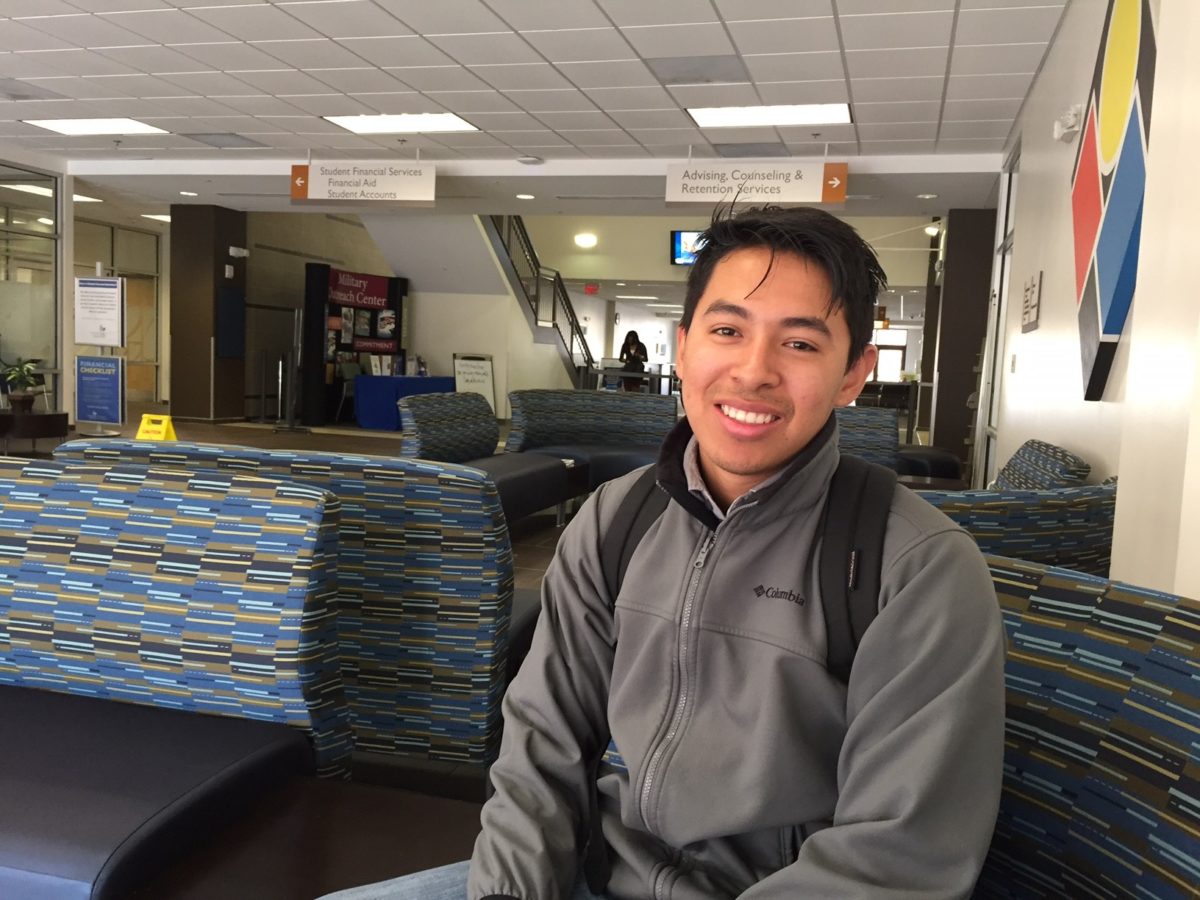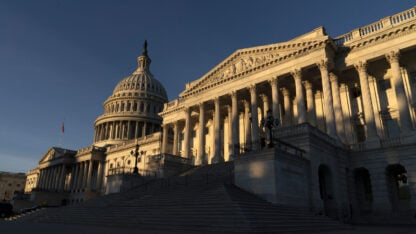Ga. DACA Students Wait For In-State Tuition Despite Ruling

Elly Yu / WABE
When Ivan Morales heard about a Fulton County Superior Court judge’s ruling that would allow immigrant students who have temporary permission to stay in the country to pay in-state tuition at Georgia’s public colleges, he was thrilled.
“Honestly, I couldn’t believe it,” said Ivan Morales, 22, a student at Georgia State University’s Perimeter College. “It slowly started sinking in, and I was like, wow this is one of the greatest moments of my life – everything that we had fought so hard for, we actually accomplished.
“We accomplished the American dream.”
Morales and nine other students sued the university system’s Board of Regents last year. The students have temporary reprieves from deportation through a federal program called DACA, or Deferred Action for Childhood Arrivals. It was created by President Obama through executive action in 2012 for young people brought to the country illegally as children.
The students argued they’re entitled to in-state tuition rates because under DACA they have “lawful presence,” which the university system requires in order for someone to be eligible to pay in-state tuition. The Board of Regents has said that DACA recipients don’t meet the “lawful presence” requirement.
But, Morales said, the ruling was a bit of a short victory. Late Tuesday, a spokesperson for the university system said it will appeal the Fulton County ruling.
“It kind of brought us down and made us realize that maybe this isn’t over yet – that maybe there’s still a long road to go,” Morales said.
For more than two years, Morales has been paying out-of-state rates at Georgia State University’s Perimeter College working on his associate’s degree in sports management. He’s been in Georgia since he was 7 years old, brought here by his parents.
For one class he said he pays around $1,000, about three times the cost of in-state tuition. He says he’d have his bachelor’s degree by now – if he could have paid in-state rates. While he said he remains hopeful about the future, it’s hard to tell what will happen next.
Despite what happens in legal battles in Georgia, the debate over whether or not DACA recipients should be allowed to pay in-state could all soon change with the new president-elect. Donald Trump’s plans for DACA haven’t been clear. During the campaign, he said he’d end the program, but has more recently said he was going to “work something out.”
Charles Kuck, the attorney who represents the students, said he understands the window may be short for students to pay in-state tuition.
“Well it is running out in a way because we don’t know what Donald Trump is going to do, but it not might be running out,” Kuck said.
Regardless of what the President-elect may do, state Sen. Josh McKoon, R-Columbus, said he wants to clarify the law so that the issue over in-state tuition could be laid to rest. McKoon, who’s been outspoken against illegal immigration, said he plans to introduce legislation that would clarify the law to require people to have legal status in order to pay in-state tuition – not just to have lawful presence or be living legally in this state. DACA recipients don’t have legal status; they only have temporary permission to stay and work in the country.
“I believe finite taxpayer resources have to be husbanded in a way that favors people who have lawful status in the country,” McKoon said.
Because the university system is appealing the ruling, it said its current policy on in-state tuition will not change.
“We believe our policy follows the law. As the Superior Court’s decision will remain on hold during the appeals process, our current in-state tuition policy will remain in effect,” said spokesperson Charles Sutlive in an emailed statement.
Kuck said DACA recipients should be able to get in-state tuition now, and disagrees that an appeals process triggers an automatic stay of the Fulton County judge’s order. He said he plans to take action so that, during the court appeals, DACA students can pay in-state tuition now.
“[Tuesday] was a victory which we should all celebrate,” said Kuck. “Now we have to work again to make sure our victory is preserved and it goes into effect.”
On Wednesday, Morales went to go to register for classes at the Dunwoody Campus. He said his account still says “out of state” tuition, but said it’s hard to tell how long that’ll be the case.
“We’re closer than we were three years ago to actually being granted in-state tuition,” Morales said.
9(MDAxODM0MDY4MDEyMTY4NDA3MzI3YjkzMw004))








